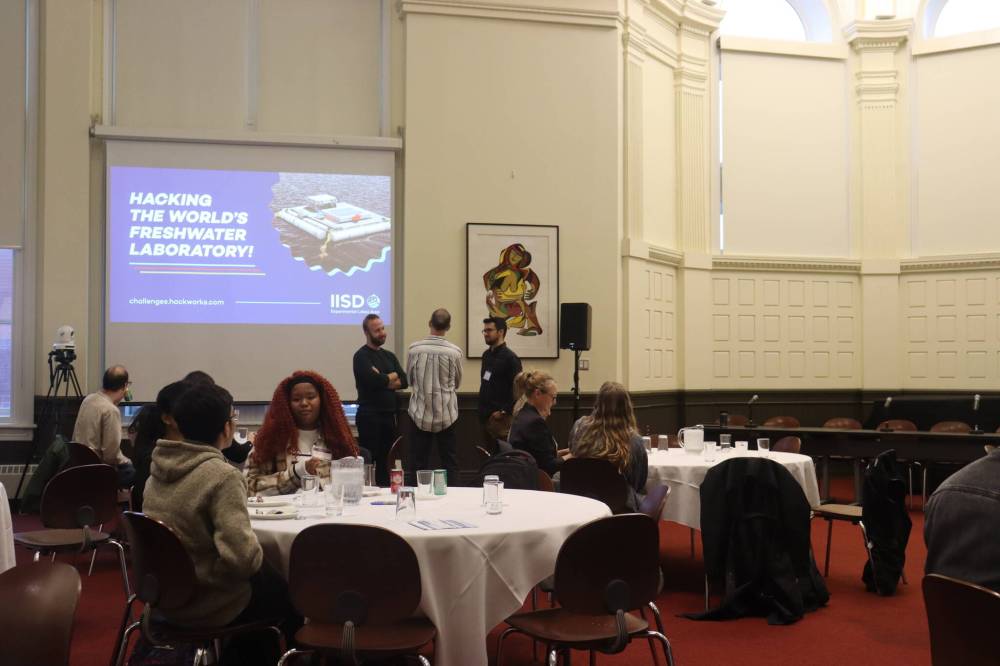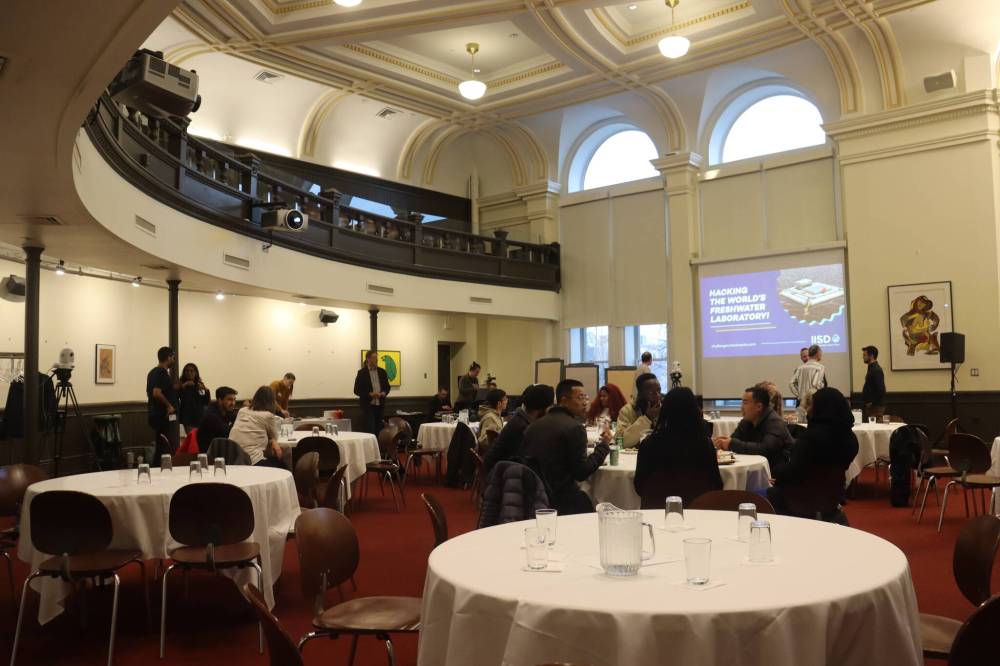Hackathon encourages collaboration, communication
Advertisement
Hey there, time traveller!
This article was published 01/11/2023 (815 days ago), so information in it may no longer be current.
Teamwork makes the dream work.
On Oct. 23, the International Institute for Sustainable Development’s Experimental Lakes Area launched its 2023 Hackathon at the University of Winnipeg, an exercise in environmental problem-solving for students and “nerds” of all technical expertise, which runs until Nov. 6.
Teams of hackers, working virtually, will attempt to resolve problems related to the geographical scale of research, guideline limitations, and more — but each issue always circles back to improving freshwater lab work and monitoring across the country.

Photo by Emma Honeybun
On Oct. 23, IISD Experimental Lakes kicked off a two-week-long Hackathon — encouraging young tech “nerds” to find computer solutions to real-world, environmental issues faced by conservation teams around the country.
The IISD is based in Winnipeg, and its the Experimental Lakes Area is a natural ‘freshwater laboratory’ made up 58 lakes in northwestern Ontario. This year’s Hackathon problems were presented by the Treaty 3 Grand Council in Kenora, Ont., Living Lakes Canada, based in Nelson, B.C., and Atlantic Coastal Action Program (ACAP) Saint John, from New Brunswick.
After the launch, the hackers were let loose to come up with possible, technical solutions — thus connecting the two worlds of modern tech and environmental science.
Communication was the major theme of the launch event, especially as this is the first time IISD has done a hackathon involving young participants.
Attendee Gwamile Dhlamini, 15, wondered how the problems could be made tangible for those unfamiliar with the technicality.
“Knowledge is power,” Dhlamini said. Although she explained that she’s more interested in political science, she visited the event with her classmates in an effort to take in as much information as she could.

Photo by Emma Honeybun
Participants in IISD Experimental Lakes Hackathon dealt WITH issues raised by Grand Council Treaty #3, Living Lakes Canada, and ACAP Saint John. Questions were also answered by representatives from Lake of the Woods Conservation Reserve, IISD-ELA, and the University of Manitoba.
“Honestly, the biggest challenge facing climate change right now is ignorance, and ignorance leads to inaction, and that’s why we’re seeing so many problems happening again and again,” she said.
“(There are) these huge companies saying that we shouldn’t care about the climate because it doesn’t help their pockets. So I believe that if we were to really combat that issue in the first place, that systematic issue, then we would be able to really tackle (it) head on,” she said.
“That’s why we’re having events like this. To educate people, but also to tell people that we need to start caring about this … computer science is such a fast and open field, and I’m just glad that there’s all these people who are working on it.”
“We’re living in a world that is changing very rapidly with technology,” said Pauline Gerrard, deputy director of IISD-ELA. “Yet there’s still some fundamental problems that we face, particularly when it comes to environmental management. The environment is very complex, like we heard today, and so (this is about) trying to figure out how we can release technology to encourage better decision making.”
Gerrard said the results of the hackathon won’t likely change the presented issues right away, but the exercise is still a valuable opportunity to connect the two worlds and encourage conversation.

“I hope we have people that weren’t necessarily engaged or understanding of some of the environmental problems that we’re facing now thinking about it in a new way,” she said. “I also hope we come up with a few good ideas. I’m not naive enough to think that the problems will be solved within two weeks. But all good ideas start somewhere. And so sometimes you just need a spark to foster things — and who knows?”
For more information on IISD Experimental Lakes Area and the work being done, visit www.iisd.org/ela

Emma Honeybun is a reporter/photographer for the Free Press Community Review. She graduated RRC Polytech’s creative communications program, with a specialization in journalism, in 2023. Email her at emma.honeybun@freepress.mb.ca
Our newsroom depends on a growing audience of readers to power our journalism. If you are not a paid reader, please consider becoming a subscriber.
Our newsroom depends on its audience of readers to power our journalism. Thank you for your support.



